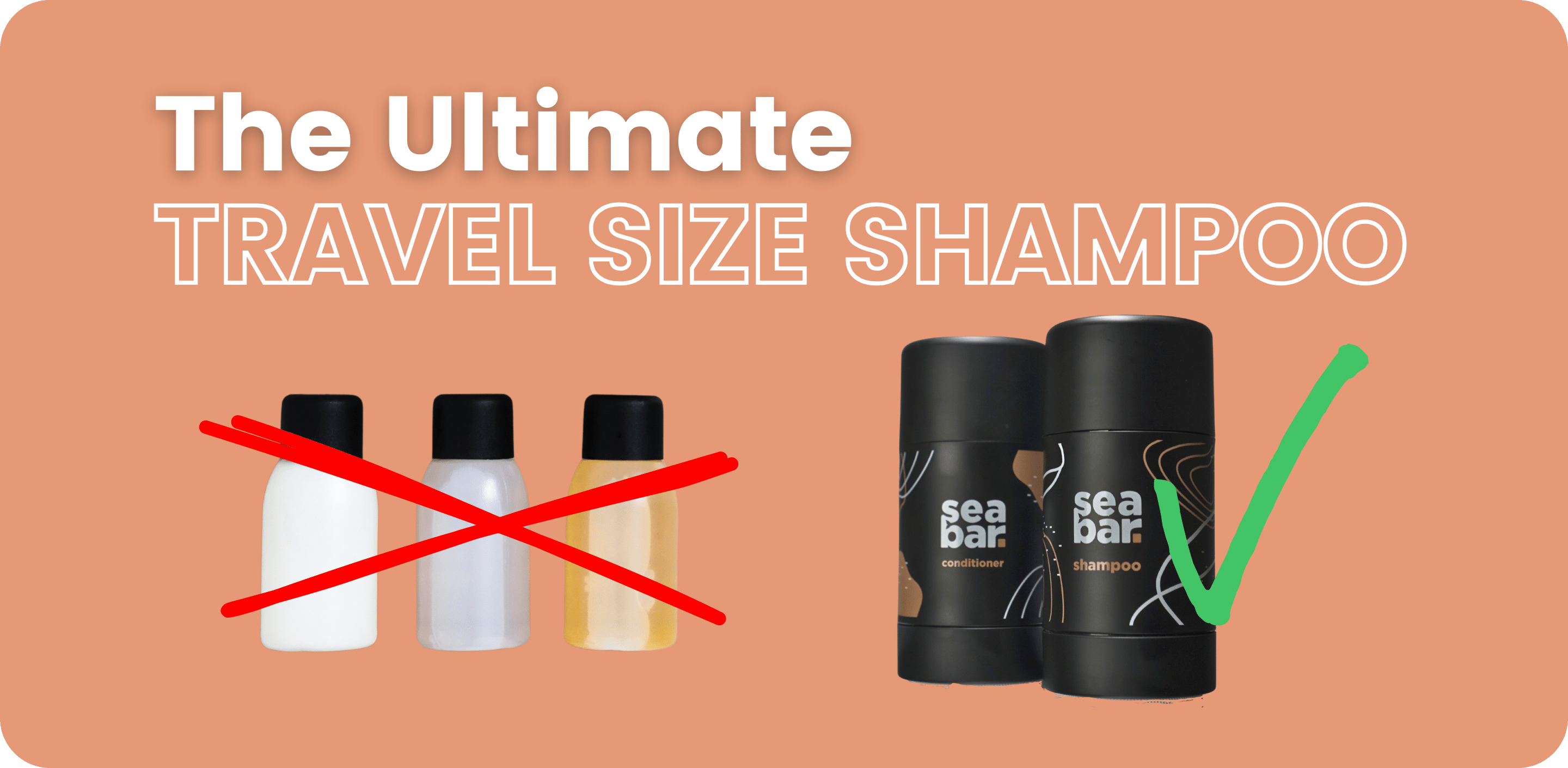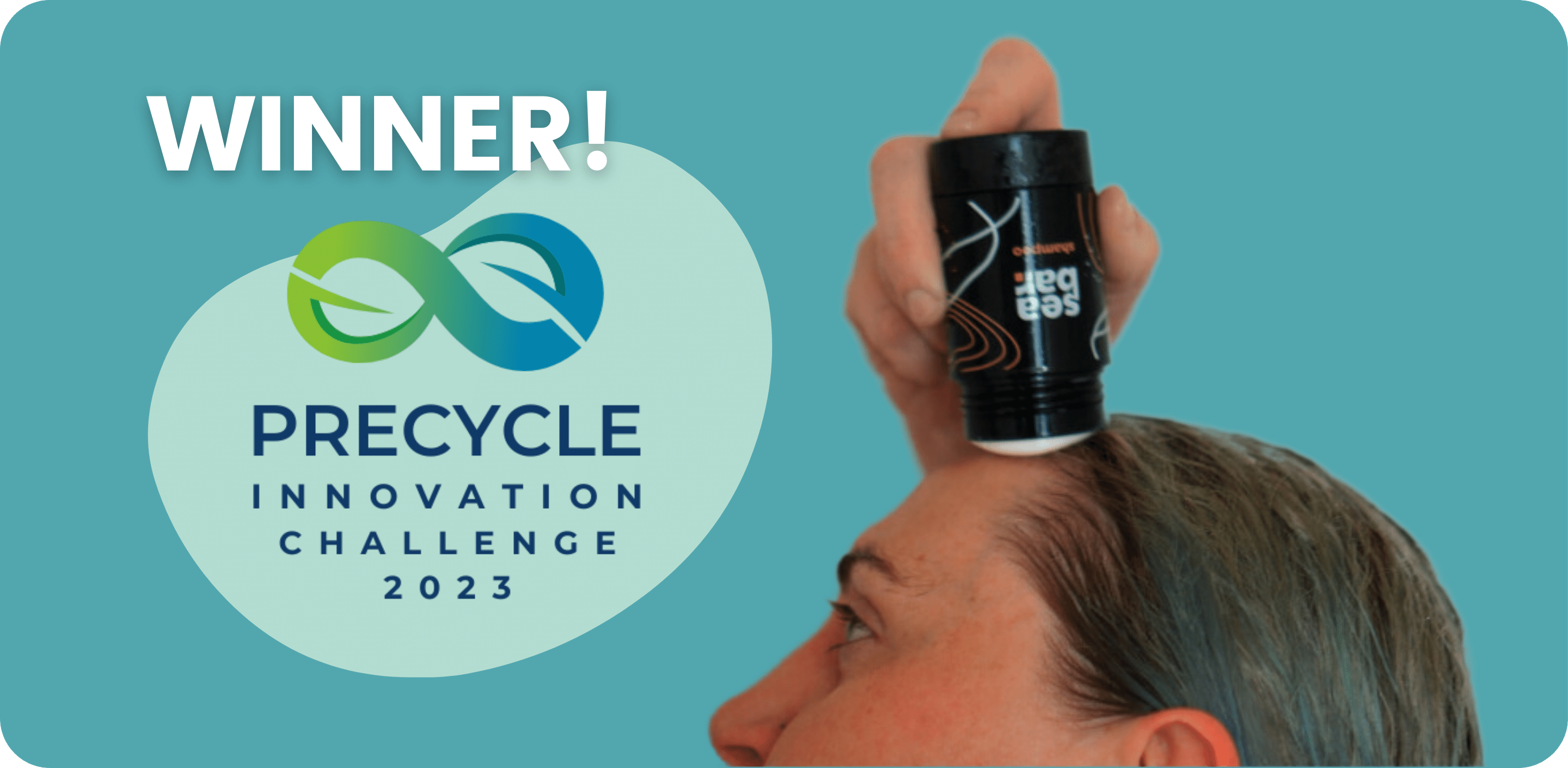Is Silicone Bad for Hair?
If you're a human being with hair on your head, the odds are you've been hearing a lot in recent years about silicone, silicone-free shampoos, and all the ways silicone is evil and must be avoided at all costs. There are so many claims that silicones slowly strangle the life out of your hair that it's easy to just assume that it must be true.
On the other hand if you've tried to look a bit deeper to learn if silicone is bad for hair then you'll no doubt have seen plenty of articles on how silicones are totally not bad at all and you should love them....
It turns out, like most things it's not quite so simple as good and bad. Some hair loves silicone, some hates it...
But is silicone bad for hair?
Stick with me and I'll show you what silicones are, and both the pros and cons of using silicone based products and we'll dive into the environmental impact of silicones.
What are Silicones?
With all the attention on silicones you might be wondering what are silicones?
Silicone is an incredibly versatile and useful substance that is made out of a long chain of oxygen and silicon atoms. To get a tad nerdy; silicone polymers are created by combining the silicon and oxygen into long polymer chain of atoms with a Si-O bond between them.
There are many applications for silicone. It's a durable, flexible material that can handle extreme temperatures, both hot and cold. When heated it doesn't release toxic chemicals like plastics and it can be found in everything from food products to engine parts, to the active ingredient in many skin care and hair care formulations.
These chemical properties are a main reason why silicone items have been receiving so much attention as a reusable "eco" alternative to disposable plastic recently.
Silicone Vs. Plastic
I like to think of silicone as plastic's little brother. They are both are incredibly versatile. They are strong and light weight and they are made in a similar way. The biggest difference between them is that plastic is made of long chains of carbon atoms usually derived from oil, and silicones are made of silica... aka sand.
Silicone is much newer than plastic. It was first created in the 1940s when English chemist Frederich Stanley Kipping was trying to create a synthetic rubber during World War II . He named it silicone because "they were sticky messes" and believed it had no commercial value. It took a few years, but silicone has begun to catch on in a big way. Plastic on the other hand was first created in the 1830s and was already gaining wide popularity when silicone was first made.
Silly Putty was one of the first major commercial successes with silicone. Some other products you'll no doubt be familiar with are those flexible muffin tins and ice cube trays. The adhesive on Post-It notes, and that rubbery white stuff that keeps your bathtub from leaking are all examples of silicone technology.
Products with silicones are incredibly popular in personal care products like skin care applications and hair care products from shampoo to conditioners to deep conditioners. They are used as heat protectants to protect your hair from hot tools, and they are used to treat frizzy hair, and to help trap water in your hair cuticle maintaining moisture.
Now that you know what silicones are, let's answer the question "is silicone bad for hair?"
Why are Silicones in Shampoos?
First, why do they use silicones in beauty products like shampoo and conditioners?
The short answer is, there are many benefits of silicone. The industry loves silicones because they are a cheap, easy way for products to make your hair soft and feel amazing. The same is true for skin care products where it provides that easy fast drying lotion feel we have come to expect.
Silicone products help detangle, and make your hair look silky and soft. In hair, this translates to that elusive shine we hear touted as the ultimate goal in shampoo commercials that practically leave shampoo models with a halo of heavenly light radiating from their luscious locks. Why wouldn't manufacturers continue to put silicones in shampoo?
Here's where things get muddy. Some groups say they aren't natural. And that silicone hair products are akin to the devil. They ruin your hair health by suffocating the hair cuticle, leading to dry hair and breakage. They also clog your pores, causing acne and suffocate your scalp causing baldness.
Pretty scary stuff...
Then you'll hear others tout that silicone-based hair products are the best invention in the world with absolutely no side effects whatsoever and all the people saying they are bad are hippy dippy weirdos who don't understand science.
The thing is... both sides seem to have something to sell you.
On one hand companies that sell natural products like including skincare products and cosmetic products like to tout the purity of their non-silicone based product ingredient list have found that labeling their products as all natural silicone-free products sells.
On the other hand, other companies who rely on synthetic ingredients in their styling products tout all the many benefits of silicones
I dove into the research trying to find scientific articles to prove one side or the other and try to answer once and for all, is silicone is bad for hair.
Why Are Silicones Bad for Hair?
In personal care products there are two main forms of silicone in hair products consumers need to know about. Water soluble silicones, and non-water soluble silicones. Basically, one washes off with just water, and the other needs heavy duty sulfate cleansers to remove them from the hair.
Most products use a blend of silicones, but much of the bad press comes from the non-soluble versions like Dimethicone.
Silicones coat the hair with a thin waxy layer that is really effective at smoothing down the hair cuticle your hair eliminating frizzy hair and smoothing hair strands. Frankly they are really good at this.
Silicone detractors say that the problem comes when, your hair over time product buildup creates an impenetrable coat of silicone sealing your hair off. Preventing moisture from penetrating the hair shaft. Getting rid of that buildup on hair requires a harsh sulfate cleanser. Which can be a problem if you use a sulfate-free shampoos. It just creates a vicious cycle of dryness and damage requiring more hair products like leave-in conditioners to help solve the problem.
Removing moisture can be especially problematic for those with curls or coily hair. Due to their physical structure some hair types like curly hair are prone to dry hair strands. This lack of moisture is the leading cause of frizz. Which is why many curly girls and curly hair products choose a silicone-free hair care routine.
Again, there are mixed messages with others claiming that this risk is overblown and that the a product with silicones will easily wash out of your hair leaving no lasting damage.
There are a couple things we do know. First build up is real. If not removed silicones will build up over time and that can result in dry, dull, and damaged hair. The second is that over usage of harsh sulfates shampoos [link] will remove too much of the natural sebum your hair produces and damage your hair shaft leading to split ends.
Our take on the silicone issue. We choose to avoid them because there are other alternatives that work well that don't seem to have the buildup problems...
If you choose to avoid them here's a list of silicones you can keep an eye out for when scanning the ingredients label of your hair products.
dimethicone,amodimethicone, and cyclopentasiloxaine are some of the most common silicones you will find in beauty products.
but there are many forms of silicone. Any ingredient ending in "-cone" is best avoided. Similarly, ingredients containing "conol", "silane", or "siloxane".
Which brings us to our next point...
Is Silicone bad for the Environment?
Again... the environmental cost of silicones is not so easy to answer.
Around here we take the environmental aspect of ingredients very seriously, so we wanted to get this one right.
Silicones have been in the news a lot as a "safer, greener" alternative to plastic. When they are used replace single use plastics and combat plastic pollution with durable, reusable replacements they fit that bill.
But what about the silicones that wash down the drain?
The first let’s answer, are silicones biodegradable? Do they break down naturally in nature.
According to the paper A Review of the Fate and Effects of Silicones in the Environment
"It was therefore erroneously assumed that these polymers [silicones] do not degrade naturally in the environment. It is the purpose of this review to refute this myth and to describe the degradation processes"
Sounds like pretty good case that there are no problems whatsoever with silicones.... Nothing more to see here right?
Something about it seemed fishy to me. Why would the purpose of a scientific paper be "refute a myth" it seemed like they set out to prove a point, not to find the truth. Looking a little deeper it turns out the article is from the Journal of Polymers and the Environment Call me paranoid, but that screams "Industry Funded Study" to me. Industry funded studies about the environmental impacts of the products don't have the greatest track record... ok its terrible, awful... like soooo bad.
![]()
I looked a bit deeper.
Then I found a paper that states "after a non‐biological step to initiate the process, the degradation occurs biologically."
Making it a little less cut and dry than the first paper listed but not too bad. It seems that silicones can break down, but they just needed a little help to get started.
And finally, this paper...Siloxanes in cosmetics and personal care products It's not nearly so kind.
In terms of biodegradability... yes silicones break down, but not all the way.
Chalk that up to one pretty good reason to avoid silicones...
Now lets look at toxicity.
Silicone is often touted as a non toxic alternative to plastics. Does that hold up to science? Not many studies have been done on direct skin contact with silicones (Siloxanes) but they have done similar studies in rats. It turns out that rats that are exposed to silicone vapors had lower fertility, and higher lost pregnancies...
Not so great...
But the FDA (Food and Drug Administration) lists Dimethicone as Designated as safe for general or specific, limited use in food... so it can't be that bad right?
Then I found that the Environment Canada Domestic Substance List has dimethicone listed as both "Suspected to be an environmental toxin" and "Suspected to be an environmental toxin and be persistent or bioaccumulative." So that's super cool... a bioaccumulative toxin... that the FDA says is ok to put in food...
At this point I'll be honest. I don't know what to think for sure.
We do know one thing... we use a lot of silicones in shampoo. In the USA alone 32 tons of silicone is washed down the drain every year just from shampoo usage. That doesn't take into account the conditioners, the lotions, and the shave gels...
It's a pretty big number... and not all of It gets filtered out at the waste water treatment plant.
There is another environmental cost to silicone that you probably wouldn't guess...I know I certainly didn't. The wold is running out of sand. Yes, you read that right we are running out of sand. Sand shortages have lead to murders and has even been linked to entire islands disappearing... It's pretty wild stuff.
The sand that is used to create silicone is also used everywhere. It's a key component in concrete for roads and bridges. It is the base for glass for windows and phone screens. And silicon is the base for all the computer chips that are in everything...
Compared to the amount sand used in concrete and glass the amount of sand used to make the silicones used in your shampoo is small, yet it's another reason to look for renewable alternatives to silicones.
In light of this info we have begun to think of silicone in hair care products like ultra micro plastics.
We humans are kinda stupid... we use products before fully understanding them and it's come back to bite us and our planet in the butt too many times to count.
We used to conduct nuclear bomb tests up wind of cities, sprayed the pesticide DDT on everything to get rid of mosquitoes, and replaced EVERYTHING with plastic... now the people from those cities are dying of cancer, Bald Eagles almost went extinct, and our oceans are clogged with plastic...
While the science might not be clear on silicones, the pattern sure is...
Invent something, sell a ton of it before knowing how it really works, a few people get super rich, and the rest of us have to deal with the consequences.
So is silicone bad for hair? I'm still not sure, but there's enough evidence to convince us they are bad for the environment
You can count us out. We'll skip the silicone.
A Silicone-Free Shampoo that Makes a Difference
There are plenty of more natural plant-based alternatives to silicones to deal with the potential down sides. Ingredients which promote hydration and help your hair maintain its own natural shine and brilliance as well or better than silicones. It may take time for your hair to recover from the damage its suffered with traditional shampoos, but if you give it a chance, your hair will work with natural ingredients to achieve a more intuitive cycle of moisturizing. This is what Seabar exists to do-- restore the natural, healthy balance of our bodies and our world.
Not only are all of Seabar's formulas silicone-free, they are also reducing the beauty industry's reliance on single-use plastic and helping un-do the damage that's been done to our environment. For every item purchased, we pick up one pound of ocean trash. As with your hair, the ocean's natural cycle has been interrupted. We're here to help with both of those problems. Give Seabar a try today and give us a chance to help clean your hair and the oceans.






